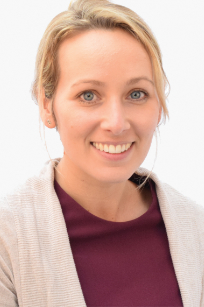Technical / Review aims to fine-tune HFMA qualifications
 More than 600 students have started a qualification with the HFMA Academy since we first launched our advanced diplomas in healthcare business and finance five years ago. For some people, the term ‘student’ can conjure up images of youngsters or those at college. But many of those studying HFMA qualifications are in fact senior finance and other NHS staff, who have made time to gain extra skills and knowledge to further their careers and enhance their value to the NHS.
More than 600 students have started a qualification with the HFMA Academy since we first launched our advanced diplomas in healthcare business and finance five years ago. For some people, the term ‘student’ can conjure up images of youngsters or those at college. But many of those studying HFMA qualifications are in fact senior finance and other NHS staff, who have made time to gain extra skills and knowledge to further their careers and enhance their value to the NHS.
This significant cohort of students is spread across both our advanced business and finance diplomas and the diploma in advanced primary care management, which has broad appeal but has been particularly popular with GP practice and commissioning body staff.
We are proud of the qualifications we have developed. The HFMA has a long history in
staff development and had already moved into the provision of e-learning short courses. However, the step into masters-level qualifications was a major undertaking.
Our analysis at the time suggested the course met a need for a finance qualification specific to healthcare.
Initially, we saw this as providing opportunities for learning and development beyond finance practitioners’ main accountancy qualification. But we quickly realised that the demand for formal masters-level qualifications was much wider. There is both a need and an enthusiasm for these programmes across the NHS in general and clinicians make up more than a quarter of the business and finance students to date.
Feedback and results suggest we have created robust qualifications, with students challenged and impressed by the depth of the content.
The course content is already subject to a thorough and ongoing update process. Things move fast in the NHS and we work hard to keep the contents current. Work is already under way to ensure the qualifications’ content reflects the reforms set out in the Health and Care Bill, which will see the NHS move to a system-based way of working, and are expected to come into effect from April 2022.
However, five years in, we are now taking the opportunity to review both the qualification programmes. We want to ensure they are delivering the right learning outcomes.
This means primarily meeting the needs of our students, but also checking in with NHS finance directors and senior leaders who may be interested in sponsoring staff members to take on further studies.
We are also keen to explore the benefits of harmonising the intakes for the two qualifications across the year – we currently have six intakes a year across the two programmes and want to understand if these start dates remain the most appropriate for NHS colleagues.
We are undertaking a number of surveys with different stakeholders as part of the review – and if we’ve contacted you, we’d be grateful if you could spare the time to respond. We’ll also be holding a focus group, involving current and past learners, during September.
We recognise that the past year has been difficult for everyone in the NHS, with long hours and intense workloads. For some people, this has not been the right time to take on further studying, and we have seen a number of deferrals during the year.
For others, home working has provided a good context for study, often freeing up hours previously lost to commuting.
However, while the NHS continues to face challenges both in terms of Covid-19 and the recovery programme, hopefully we can all look forward to a bit more stability. We have a new cohort of enthusiastic learners starting this month and will take on board any lessons from the review process once it is concluded to ensure our qualifications continue to meet the demands of users and the NHS.
Emily Osgood is the HFMA head of education and professional development
Related content
The value masterclass shares examples of organisations and systems that have pursued a value-driven approach and the results they have achieved.
We are excited to bring you a fun packed Eastern Branch Conference in 2025 over three days.